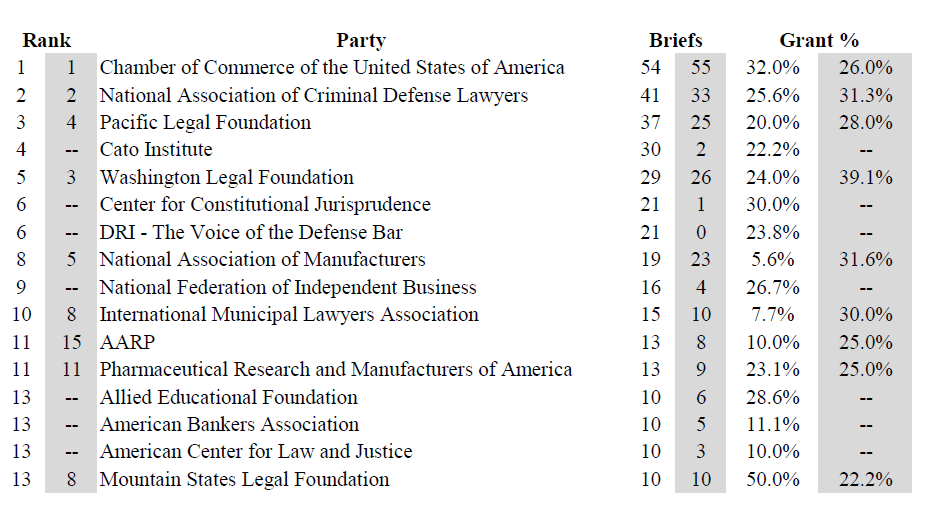2. Justice O'Connor regrets Bush v. Gore:
“It took the case and decided it at a time when it was still a big election issue,” Justice O’Connor told the Chicago Tribune editorial board on Friday. “Maybe the court should have said, ‘We’re not going to take it, goodbye.’”
She continued: “Obviously the court did reach a decision and thought it had to reach a decision. It turned out the election authorities in Florida hadn’t done a real good job there and kind of messed it up. And probably the Supreme Court added to the problem at the end of the day.”
The result, she allowed, “stirred up the public” and “gave the court a less than perfect reputation.”
3. Is 100 years a life sentence under Graham (via NY Times)?:
The lower courts are split on how to interpret the Graham decision, and
the Supreme Court seems to be in no hurry to answer the question. Last
week, the justices turned away an appeal from Chaz Bunch of Ohio, who
was convicted of kidnapping and raping a woman in a carjacking when he
was 16. He was sentenced to 89 years. Even assuming he becomes eligible
for early release, he will be 95 years old before he can leave prison.
The United States Court of Appeals for the Sixth Circuit, in Cincinnati, upheld the sentence, even as it acknowledged that there were two ways to approach the matter.
“Some courts have held that such a sentence is a de facto life without
parole sentence and therefore violates the spirit, if not the letter, of
Graham,” Judge John M. Rogers wrote for a unanimous three-judge panel.
“Other courts, however, have rejected the de facto life sentence
argument, holding that Graham only applies to juvenile non-homicide
offenders expressly sentenced to ‘life without parole.’ ”
Until the Supreme Court speaks, Judge Rogers wrote, there is no “clearly
established federal law” to assist Mr. Bunch, who was challenging his
state conviction in federal court.
Applying the reasoning of the Graham decision to long fixed sentences,
Judge Rogers added, “would lead to a lot of questions.” An appeals court
in Florida last year listed some of them in upholding a 76-year sentence meted out to Leighdon Henry, who was 16 when he committed rape.
“At what number of years would the Eighth Amendment become implicated in
the sentencing of a juvenile: 20, 30, 40, 50, some lesser or greater
number?” Judge Jacqueline R. Griffin wrote for the court.
4. Judy Clarke has been appointed to assist the Boston Fed PD in the Marathon Bombing case. She also represented Jared Loughner.
5. President Obama isn't getting his judicial nominees confirmed. Who is to blame? Via Huffington:
It's bad enough that there are 82 vacant federal judge slots around the country, a level so high that many observers have deemed it a crisis situation.
But perhaps even more startling is the fact that of those 82 vacant slots, 61 of them don't even have a nominee.On its face, the absence of nominees would appear to be a sign that President Barack Obama is slacking. After all, he is responsible for nominating judges, and he did put forward fewer nominees at the end of his first term than his two predecessors. But a closer look at data on judicial nominees, and conversations with people involved in the nomination process, reveals the bigger problem is Republican senators quietly refusing to recommend potential judges in the first place.









